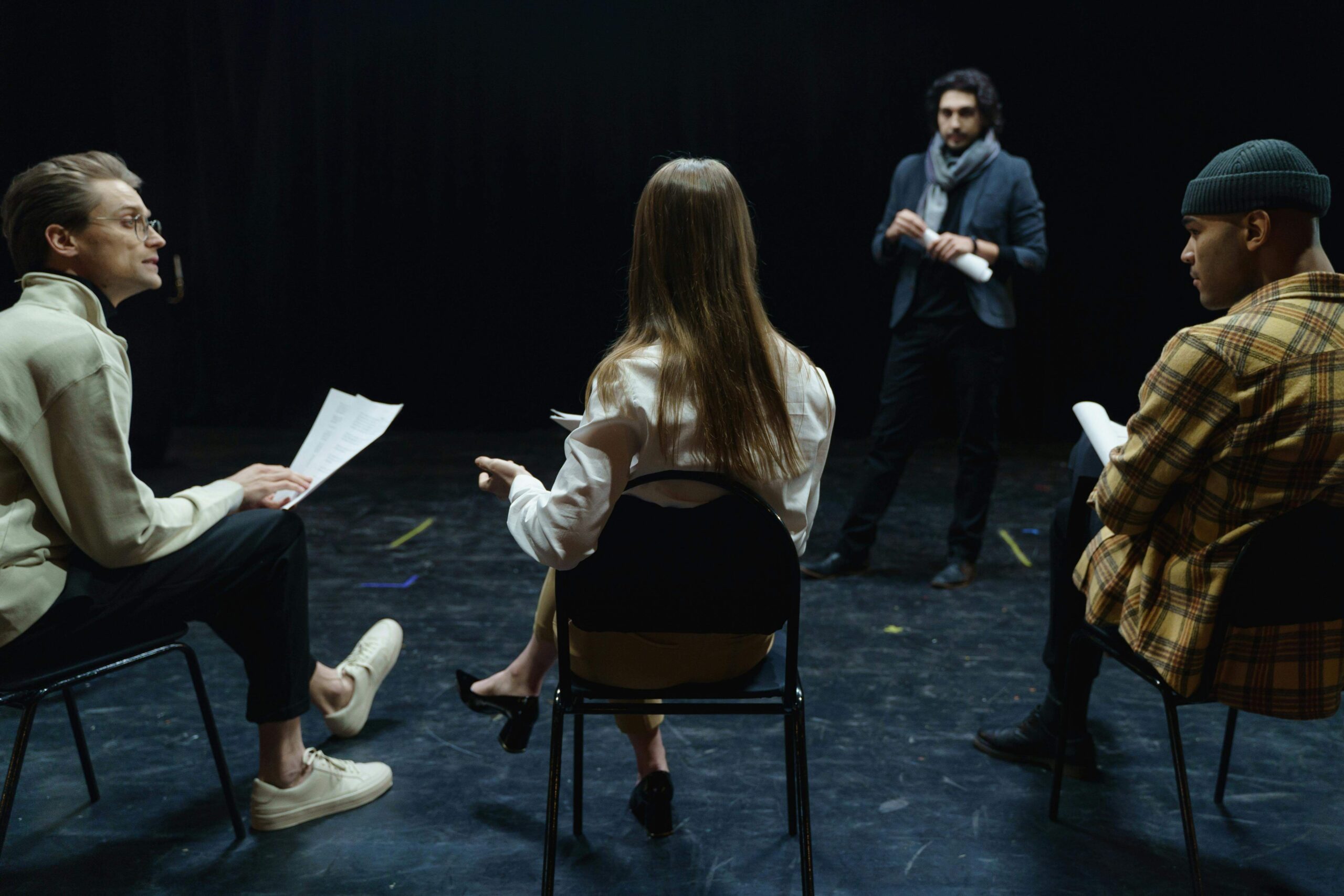How do pre-audition workshops help increase turnout?
Pre-audition workshops reduce anxiety by preparing participants for the actual audition. They learn the material in advance, which builds confidence and encourages more people to audition.
What should be included in video tips from the creative team?
Video tips should include advice from the director, music director, and choreographer on what they’re looking for. Topics can cover vocal techniques, acting skills, and specific choreography to help participants prepare.
How can I make my auditions more inclusive?
Offer flexible scheduling, allow video submissions, and provide extra time or individual coaching for those who need it. Make all audition materials accessible and create a welcoming atmosphere.
What’s the best way to promote auditions?
Use a mix of social media, local media outreach, and word of mouth. Engage with online communities where potential auditionees are active and encourage past participants to spread the word.
Can I use workshops for every show?
Yes, workshops can be tailored to each show’s needs. Whether it’s teaching a specific song, choreography, or acting technique, workshops help everyone feel prepared and reduce audition stress.
How can I support first-time auditionees?
Provide extra guidance and create specific time slots for first-timers. Offering a low-pressure environment and feedback can help them feel more




